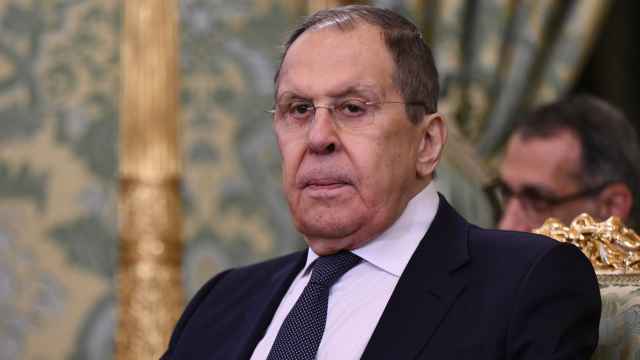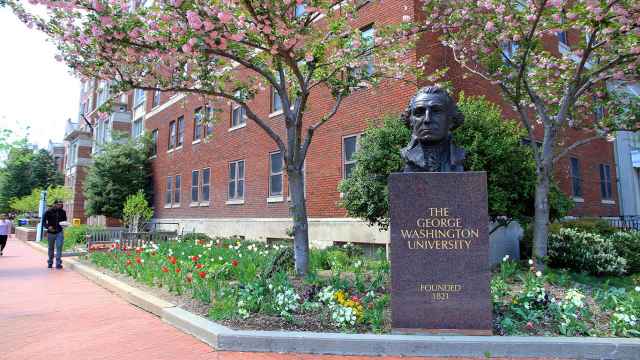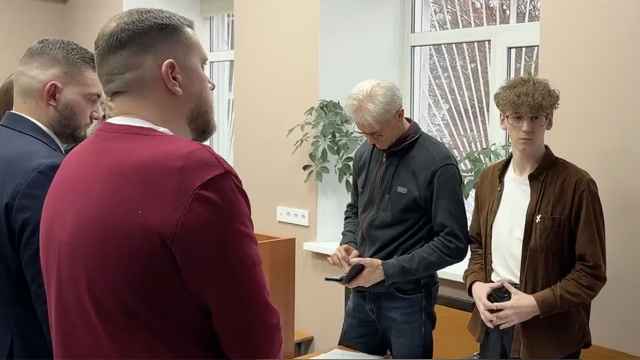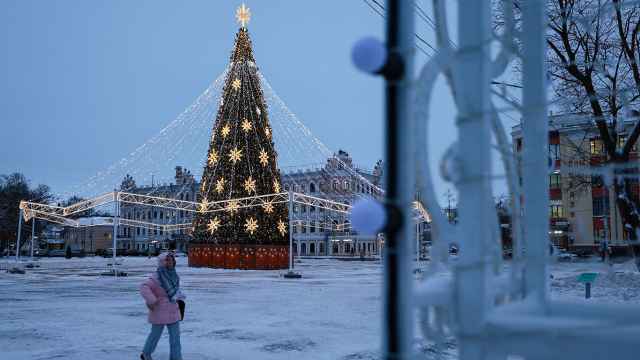Russia will let NATO take armored vehicles to Afghanistan through its territory under an expanded transit deal that would reduce reliance on volatile Pakistan, Foreign Minister Sergei Lavrov said Thursday.
"The transit applies to armored vehicles with anti-mine protection," Lavrov told a news briefing attended by his Afghan counterpart, Zalmay Rasul. Existing transit deals, permitting the Western military alliance to ship non-lethal supplies such as food and fuel to Afghanistan, would be expanded to allow for so-called "reverse shipments," he said.
The addendum would potentially allow for vehicles in need of repair and refurbishment to be sent back to NATO countries.
About 80 percent of NATO's supplies now cross through Pakistan. NATO has been trying to reduce its dependence on oil convoy routes through Pakistan because they are exposed to frequent Islamist militant attacks. A particularly brazen strike last month set ablaze more than two dozen tankers.
Rasul said Afghan President Hamid Karzai was planning a visit to Moscow in January.
Karzai has sought to improve ties with Moscow and asked President Dmitry Medvedev on his last Russian trip, in August, for help establishing peace and stability in Afghanistan.
The transit deal stops short of opening the Russian route for weapons for the NATO mission in Afghanistan, where Moscow fought a disastrous 1979-89 war that killed 15,000 Soviet troops.
Russia's NATO envoy was quick on Thursday to stress that the deal would not allow NATO to ship tanks or combat-ready armored personnel carriers, or APCs, through Russian territory.
"We are not talking about APCs or armored vehicles that could participate in military action but vehicles with reinforced protection to transport mainly civilian personnel," envoy Dmitry Rogozin told Ekho Moskvy radio.
Lavrov also said Russian counter-narcotics experts would continue to participate in joint anti-drug raids with NATO in Afghanistan, after the first such operation last month.
Russia has been vocally critical of what it views as NATO's failure to stem the Afghan opium trade, the bulk of which flows north to Russia through Central Asia's porous borders, fueling an HIV/AIDS epidemic from heroin addicts who inject the drug.
A Message from The Moscow Times:
Dear readers,
We are facing unprecedented challenges. Russia's Prosecutor General's Office has designated The Moscow Times as an "undesirable" organization, criminalizing our work and putting our staff at risk of prosecution. This follows our earlier unjust labeling as a "foreign agent."
These actions are direct attempts to silence independent journalism in Russia. The authorities claim our work "discredits the decisions of the Russian leadership." We see things differently: we strive to provide accurate, unbiased reporting on Russia.
We, the journalists of The Moscow Times, refuse to be silenced. But to continue our work, we need your help.
Your support, no matter how small, makes a world of difference. If you can, please support us monthly starting from just $2. It's quick to set up, and every contribution makes a significant impact.
By supporting The Moscow Times, you're defending open, independent journalism in the face of repression. Thank you for standing with us.
Remind me later.





